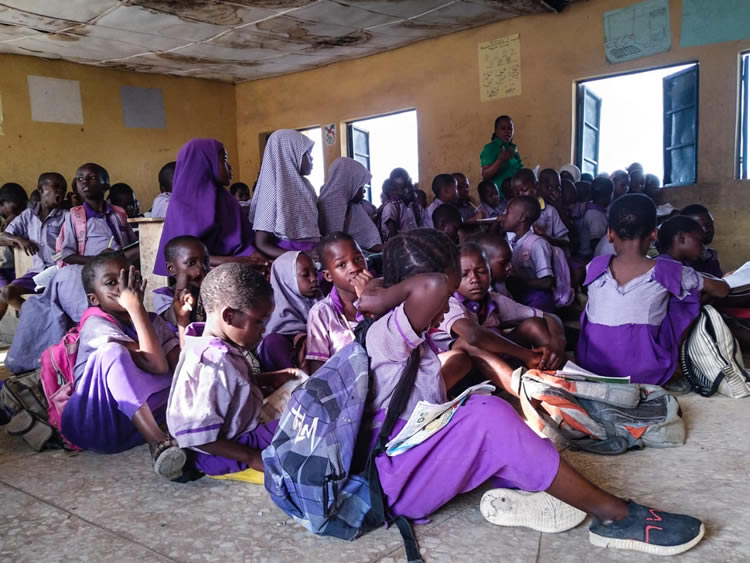Govt urged to make basic, secondary education free, compulsory – Daily Trust
Govt urged to make basic, secondary education free, compulsory Daily Trust


A Call for Free and Compulsory Education at Basic and Secondary Levels

Introduction
A former executive secretary of the National Universities Commission (NUC) has emphasized the need for the federal and state governments to make education at the basic and secondary levels free and compulsory. This article discusses the importance of providing accessible education to all Nigerian children, aligning with the Sustainable Development Goals (SDGs).
The Thomas Agnes Christianah Okojie (TACO) Charity Foundation
The Thomas Agnes Christianah Okojie (TACO) Charity Foundation, named after Prof Okojie’s parents and wife, was launched in Abuja. The foundation aims to promote educational opportunities for children in Nigeria. As part of the launch, the inaugural edition of the Julius Okojie lecture series titled “The Future of the Nations University System” was held.
Importance of Free Primary and Secondary Education
Prof Okojie emphasized that Nigerian leaders have a responsibility to provide free primary and secondary education to every Nigerian child. This is crucial for enabling children to fulfill their potential and contribute to society. He expressed concern about the current state of primary education, citing examples of students studying under trees. He argued that such conditions hinder the holistic development of students and impede the country’s growth and development.
Government Responsibilities
Prof Okojie criticized the existing government structures, highlighting the mismatch in responsibilities. He pointed out that the federal government is involved in basic education, which should be the function of local governments, while secondary schools fall under the jurisdiction of state governments. He stressed the importance of education, stating that a girl without education faces limited opportunities in the country. To address this issue, Prof Okojie has been advocating for free education through his family house in Uromi, Edo State.
Conclusion
Ensuring free and compulsory education at the basic and secondary levels is essential for achieving the Sustainable Development Goals (SDGs) in Nigeria. It is the responsibility of the government to provide accessible education to all children, enabling them to thrive and contribute to the nation’s progress.
SDGs, Targets, and Indicators
-
SDG 4: Quality Education
- Target 4.1: By 2030, ensure that all girls and boys complete free, equitable, and quality primary and secondary education.
- Indicator 4.1.1: Proportion of children and young people (a) in grades 2/3; (b) at the end of primary; and (c) at the end of lower secondary achieving at least a minimum proficiency level in (i) reading and (ii) mathematics, by sex.
- Indicator 4.1.2: Participation rate of youth and adults in formal and non-formal education and training in the previous 12 months, by sex.
Analysis
The article addresses the issue of education at the basic and secondary levels in Nigeria. It highlights the need for free and compulsory education for all children in the country. This aligns with SDG 4: Quality Education, which aims to ensure inclusive and equitable quality education for all.
Based on the article’s content, the specific target under SDG 4 that can be identified is Target 4.1: By 2030, ensure that all girls and boys complete free, equitable, and quality primary and secondary education. The article emphasizes the importance of providing free primary and secondary education to Nigerian children.
The article does not explicitly mention any indicators related to measuring progress towards the identified target. However, Indicator 4.1.1 and Indicator 4.1.2 can be relevant in this context. Indicator 4.1.1 measures the proportion of children and young people achieving minimum proficiency levels in reading and mathematics, while Indicator 4.1.2 measures the participation rate of youth and adults in education and training.
Table: SDGs, Targets, and Indicators
| SDGs | Targets | Indicators |
|---|---|---|
| SDG 4: Quality Education | Target 4.1: By 2030, ensure that all girls and boys complete free, equitable, and quality primary and secondary education. | Indicator 4.1.1: Proportion of children and young people (a) in grades 2/3; (b) at the end of primary; and (c) at the end of lower secondary achieving at least a minimum proficiency level in (i) reading and (ii) mathematics, by sex. Indicator 4.1.2: Participation rate of youth and adults in formal and non-formal education and training in the previous 12 months, by sex. |
Behold! This splendid article springs forth from the wellspring of knowledge, shaped by a wondrous proprietary AI technology that delved into a vast ocean of data, illuminating the path towards the Sustainable Development Goals. Remember that all rights are reserved by SDG Investors LLC, empowering us to champion progress together.
Source: dailytrust.com

Join us, as fellow seekers of change, on a transformative journey at https://sdgtalks.ai/welcome, where you can become a member and actively contribute to shaping a brighter future.







